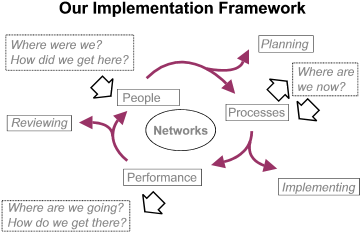Project Management
"Making things happen" is a distinguishing feature of Z/Yen, especially making things happen with a purpose. Project management is a core skill for us, not only because we must manage our own projects, but also because clients expect us to help them manage theirs. Z/Yen's environment is a demanding one for a project manager - unique problems, a variety of industries, a variety of skills, a mix of client, Z/Yen and other staff, punishing deadlines, rapid change and high quality standards. Without a strong focus on project management, we could not survive as a business.

Project managers must answer some basic questions:
- What do we want to achieve?
- What do we need to achieve?
- What are the options?
- What will we accept in scope, functionality, quality, time and resource consumption?
- How will we get there?
- Are we managing the risks to obtain the rewards?
- Do we have good control of our project?
- Have we delivered and is our client satisfied?
- How can we do better next time?
Z/Yen manages a large number of demanding projects, such as coordinating a £150 million privatisation, designing a $300 million global trading network, installing the largest social work monitoring programme in the UK and managing a $3 million research project in computing and finance.
Z/Yen people have managed an enormous range of projects from cartographic digitisation of the world, to the London Ambulance Service systems turnaround, to the Eurotunnel project management office (French side) through to the installation of high-performance global trading systems.
We work with our clients in a number of ways:
- Project management offices: where we specify, design and install project management principles, processes and procedures, as well as helping with external quality assurance;
- Project management systems: where we provide automated support systems to identify, track and manage project risks ranging from Microsoft Project to large systems;
- Project management training: where we work with clients to assess skills, identify training needs and develop formal and informal training and development packages;
- Interim management: where we provide individuals who work directly with our clients to enhance or turn-around projects.
We recognise, and respect, the diversity of project management methodologies, e.g. PRINCE in the UK, as well as the supporting technical methodologies, e.g. SSADM, which are used in different fields. In the final analysis, the more we control risks on projects, the more successful projects we deliver, the greater the rewards.